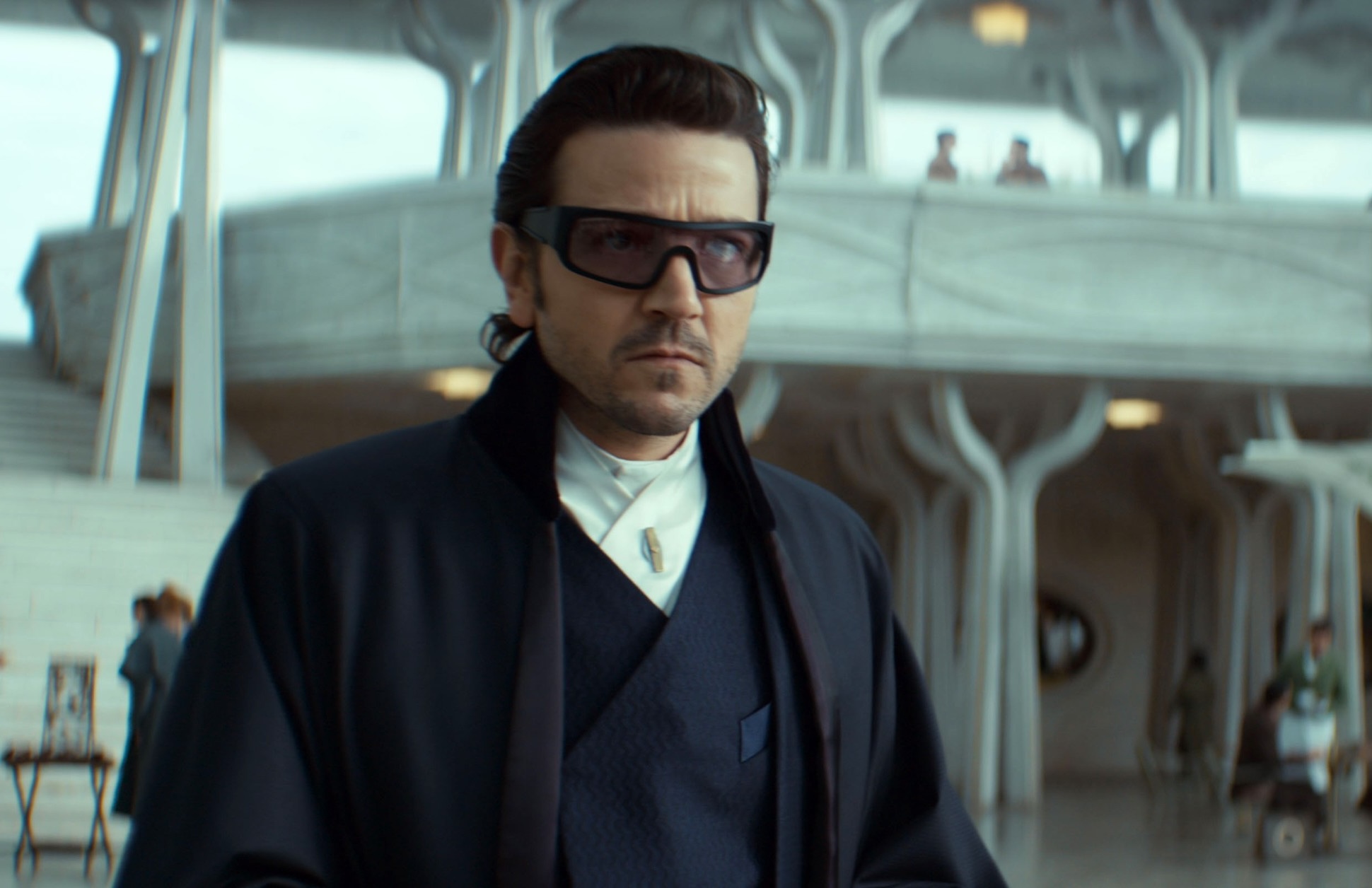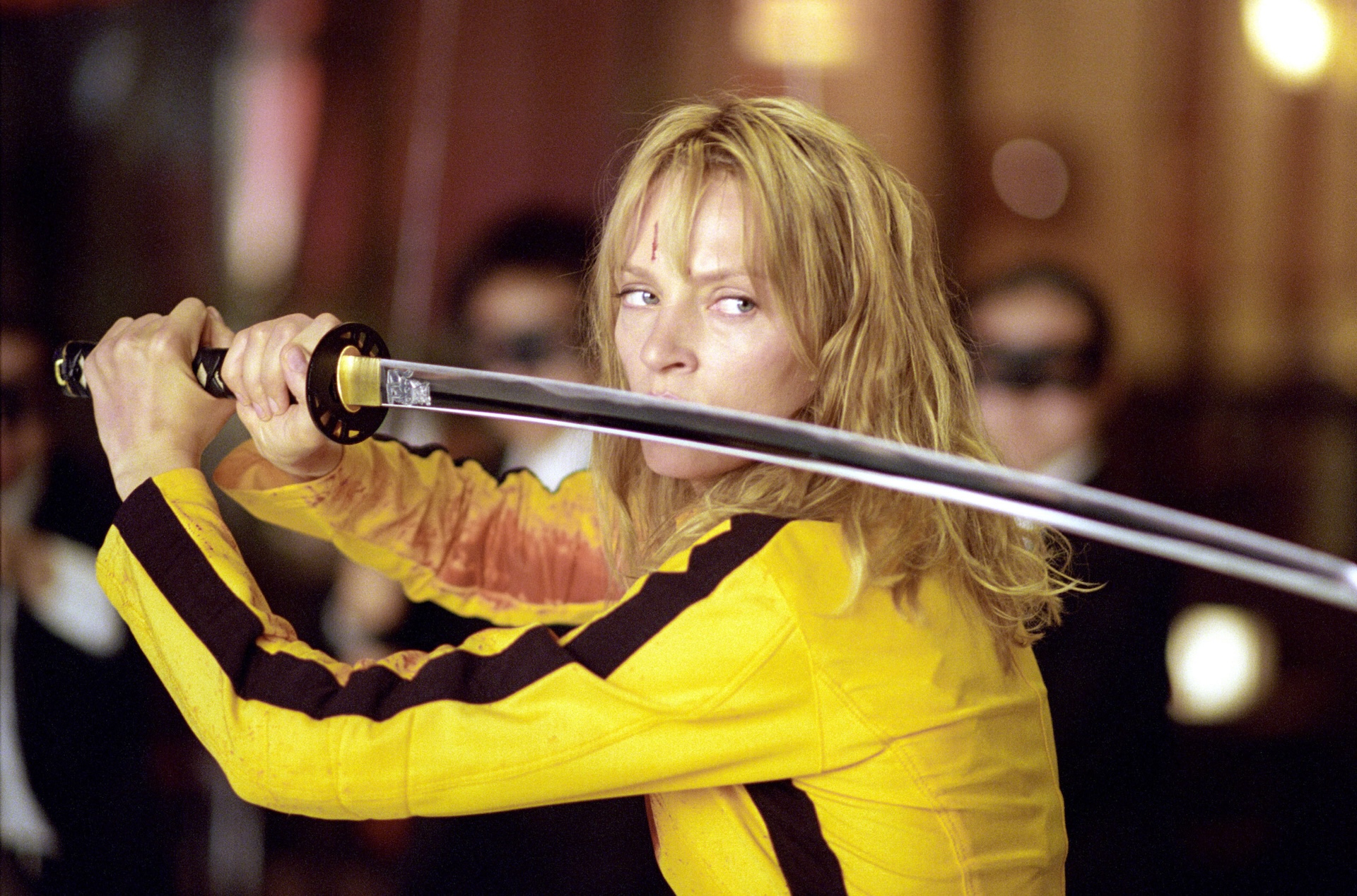After cutting Celine Song’s first two films, “Past Lives” and “Materialists,” editor Keith Fraase has a clearer understanding of the director’s view on love and relationships, what our value is as people, and the different paths we can take in our lives. “All of these ideas are stemming from Celine’s brilliant mind, so, of course, her films are in conversation with each other,” Fraase told IndieWire.
“The thing that was immediately most striking to me about ‘Materialists‘ was the deep dive into the notion of capitalism and consumerism infecting the dating scene,” he continued. “Breaking each other down into these component parts of height and income and attractiveness and style simplifies each other’s humanity so much. We’re devaluing ourselves and our potential partners. It’s obviously something that we live with day to day, and you see all around you. But I think there was something revelatory about Celine pointing this out and saying, ‘Look what we’re doing.’”
In “Materialists,” Lucy (Dakota Johnson) works at a high-end matchmaking agency in Manhattan, pairing up wealthy professionals with cold, calculated precision. But Lucy finds herself torn between dashing millionaire, Harry (Pedro Pascal), a unicorn who checks all of her boxes, and devoted ex-boyfriend John (Chris Evans), a broke cater waiter and struggling theater actor. She also reevaluates her brutal profession and worldview after long-time client Sophie (Zoe Winters) gets assaulted on a first date and sues the agency.
Balancing light and dark, however, is not something that editorially concerns Fraase and Song. Nor is categorizing the film as a romcom or dramedy. The tone organically grows out of character and situation. “We don’t often focus on what is funny, or what is supposed to make you cry,” he said. “We’re just trying to make sure the moment is true and honest and real, and that we are serving the characters the best we can. We’re serving the performances the best we can.
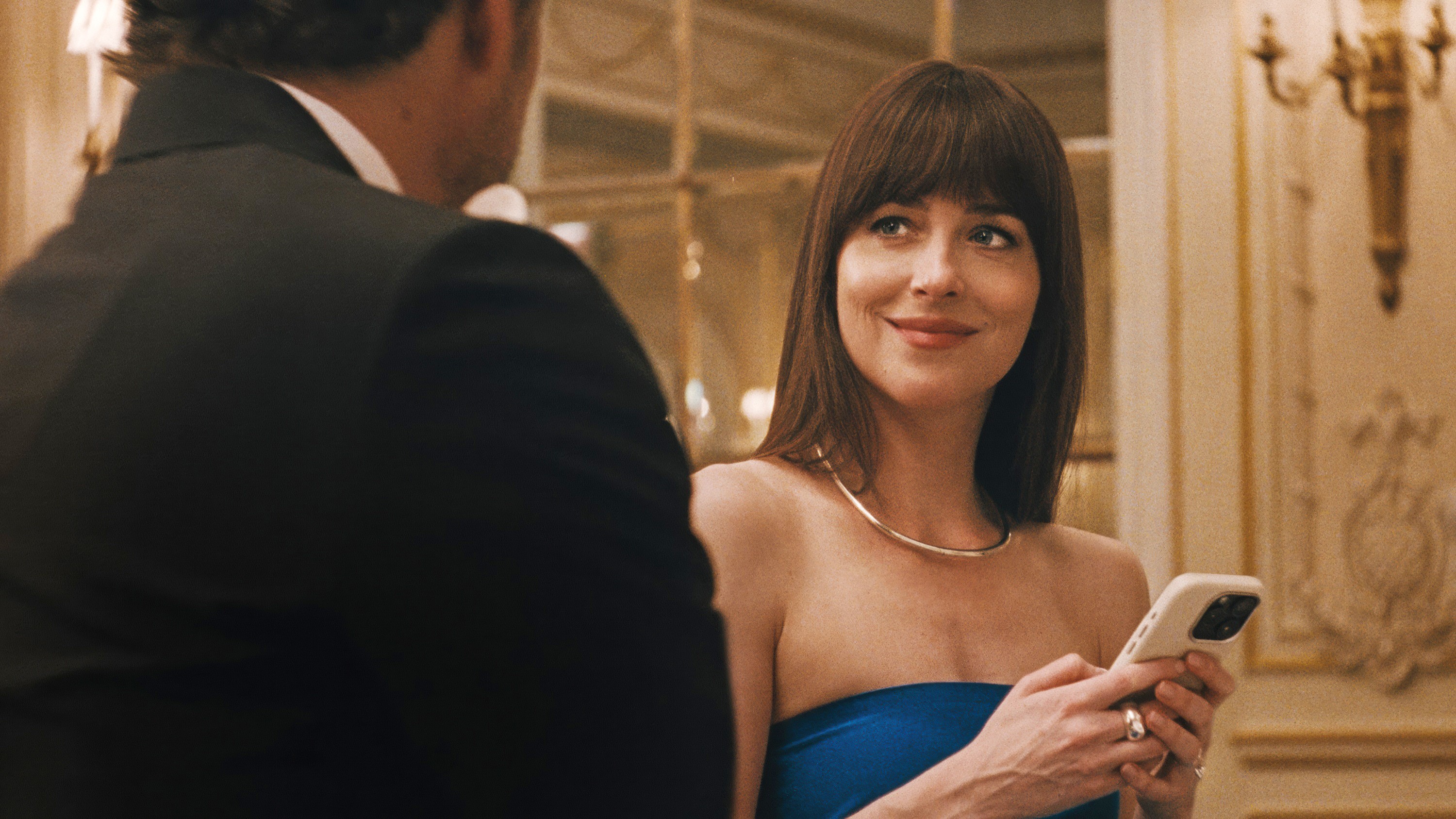
“In cutting any comedy, I can do everything with a light touch, but specifically with Celine’s writing, it’s like Shakespeare in the theater: you don’t want to overly perform the lines. It’s supposed to be effortless. There’s a certain poetic and intellectual wit to it that you just let it be.”
As part of his prep, Song provided Fraase with a list of 24 films that influenced “Materialists,” dominated, of course, by Jane Austen adaptations. “We did the same thing on ‘Past Lives,” he added. “It was important that we saw all the same films that had a similar vocabulary that we could discuss with one another in the cutting room. It’s so important to get on the same page.”
The editor was particularly blown away by Ang Lee’s “Sense and Sensibility,” which he had never seen before. “It just surprised me and has just shot up to the top of the list as one of the greatest and probably my favorite Jane Austen adaptation,” he said. “Everything’s about class and money and the exchanging of goods, just like ‘The Materialist’ references. But what happens if the status of one’s class is still really an important aspect of the dating scene in Manhattan? Wealth can solve a lot of the problems. But what happens if that true love of yours is poor and won’t solve any of your problems? And so Celine was trying to flip that on its head.”
Song even subverts our expectations by opening “Materialists” with a ritualistic engagement between a caveman and a cavewoman, which the editor found very bold when he first read the script. “I love it being unexpected,” said Fraase. ”Since the beginning of time, humans began coupling, and it was very important to us to really showcase in the very early scene. He brings her a bag of tools and gives her flowers. These are gifts. Even at the beginning of time, this transaction is occurring.”
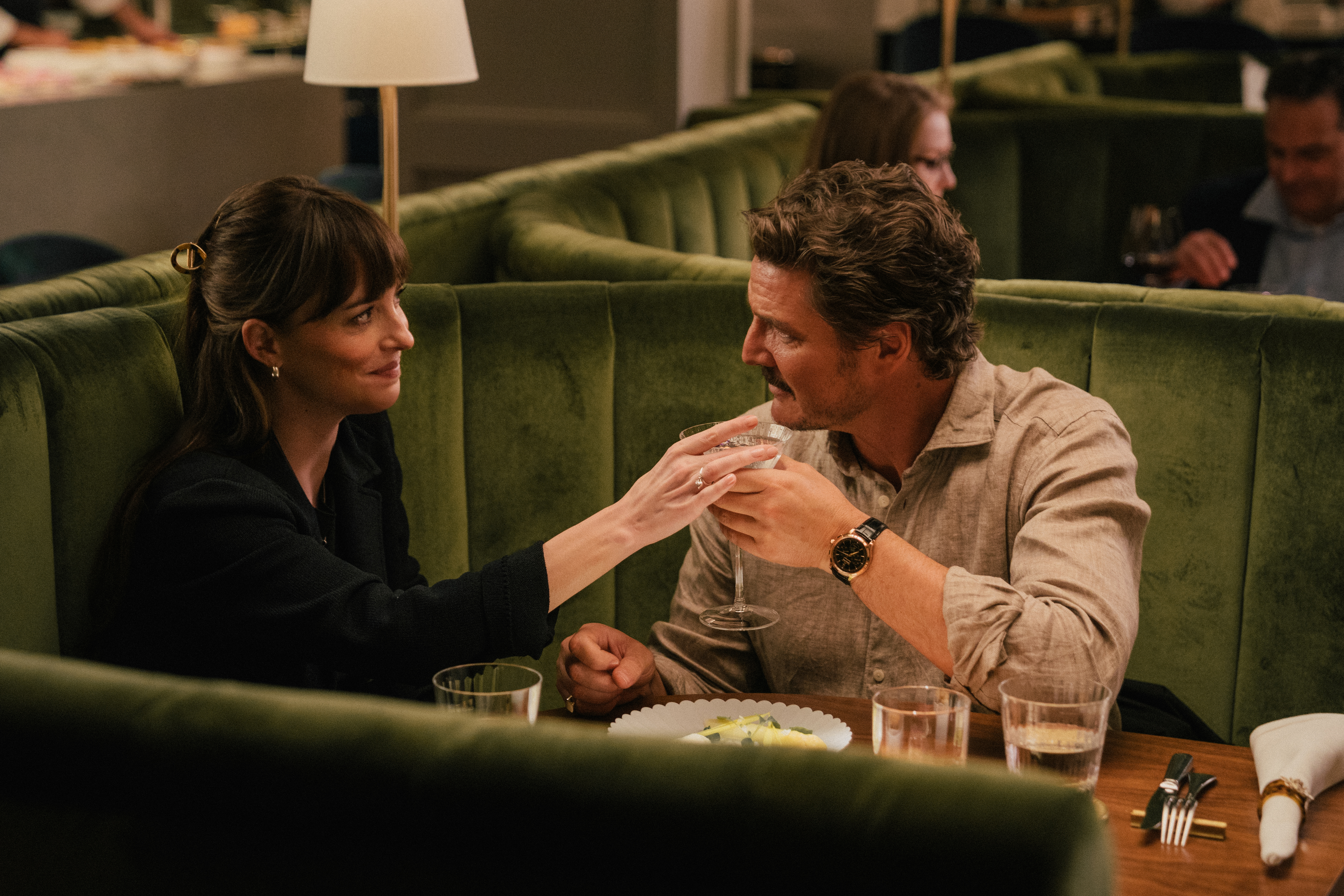
The film is crucially built around two weddings: the first when Lucy and Harry meet-cute at the reception of his brother’s wedding that she arranged, which is interrupted by a chance reunion with John; the second when Lucy and John crash a wedding in upstate New York after her breakup with Harry.
“Harry was first introduced where he arrives and you get a little bit more information about him with his brother, talking back and forth about divorce,” Fraase said. “ And we realized early on it was better to just introduce Harry in his element. You see him dressed to the nines immediately, greeting people. It just got straight to the point and was very efficient. That’s how Celine likes to cut things, with a deft hand.”
First, Harry witnesses Lucy from afar conversing with some women about dating and demonstrating her matchmaking prowess. He’s intrigued. At the reception, he sits beside her at the singles table and compliments her on her matchmaking skills. However, instead of hiring her, he wants to date her. She immediately puts on her armor, but he charms her into considering the offer.
“ So we’re going back and forth between these singles on Lucy and Harry, trying to hold on each one as long as possible,” Fraase added. “ The key with Celine’s movies is we try to cut as little as possible. So you’re left wondering what the reaction is. What is Harry thinking? And then John comes in as this waiter with coke and beer, and we’re shocked. It’s a drink that no one would ever order, and there’s no way for anyone to know that this is her drink. So that breaks frame and interrupts their repartee, and we finally get this three-shot, and we just hang on it. The discomfort for both Lucy and Harry.”
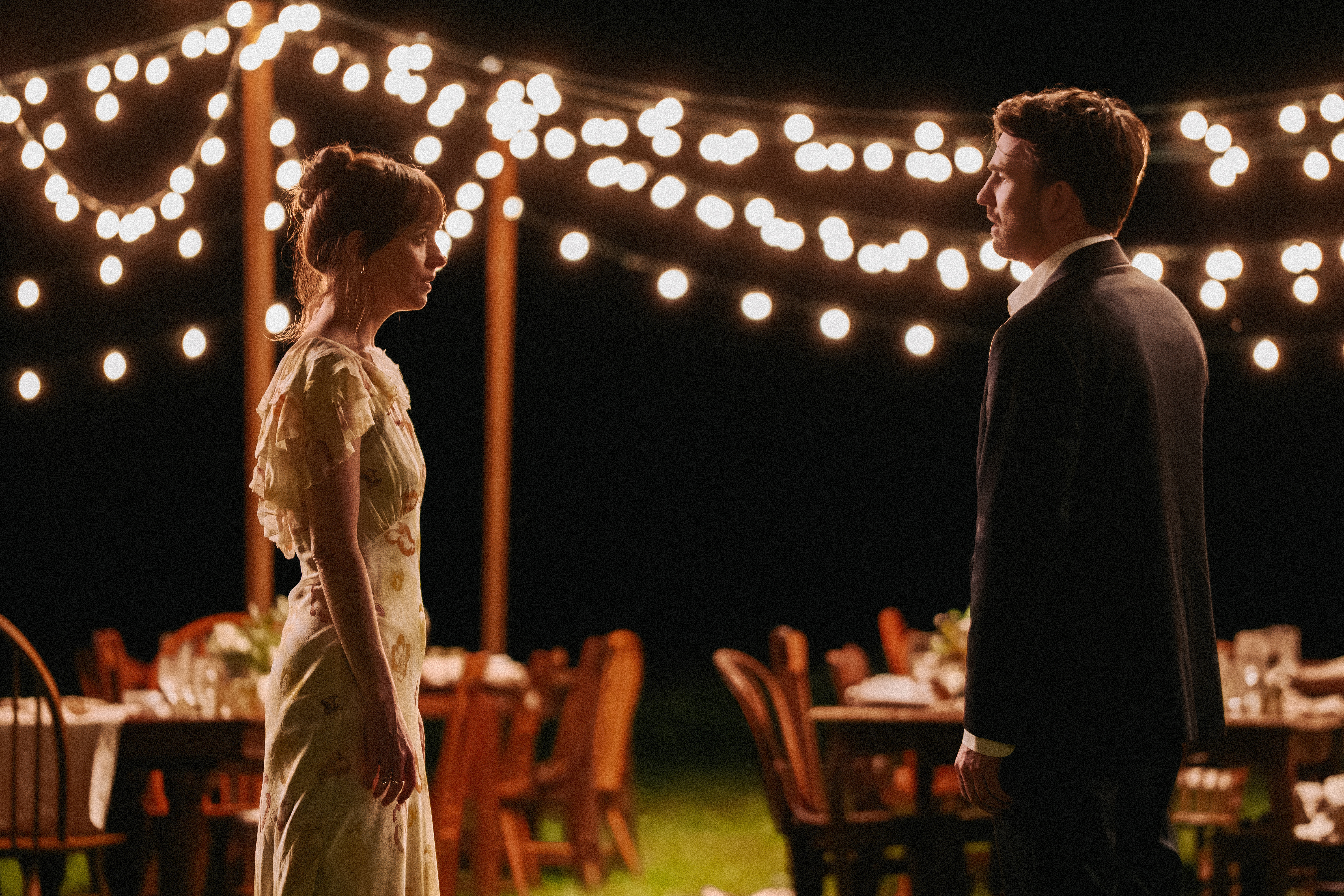
The past and present collide for Lucy as she catches up with John, who drives her home from the wedding in the same “clunky” car he had when they were dating a decade ago. Cut to a flashback to fighting in the car about the cost of parking, which leads to their breakup over his inability to afford her.
”This is the one scene where we wanted to have the cutting go a lot faster,” Fraase said. “I wanna make it feel like an argument. The first cut I ever did to this scene was a lot slower. Let everyone finish their lines. And we were like, no, it has to feel like an argument. You’re not gonna get all the lines. We just kept working at it until it became a bit more frantic. The rhythm is much more staccato than everything else in the movie.”
In the third act outdoor wedding, Lucy and John enjoy a brief romantic interlude amidst the beauty of nature. They are intoxicated but uncertain about getting back together because of their love versus luxury dilemma. “One of my favorite lines in the whole movie is when John asks if they are always going to be passengers at a wedding,” added Fraase. “It’s so devastating to me, this feeling of being observers at someone else’s happiness.
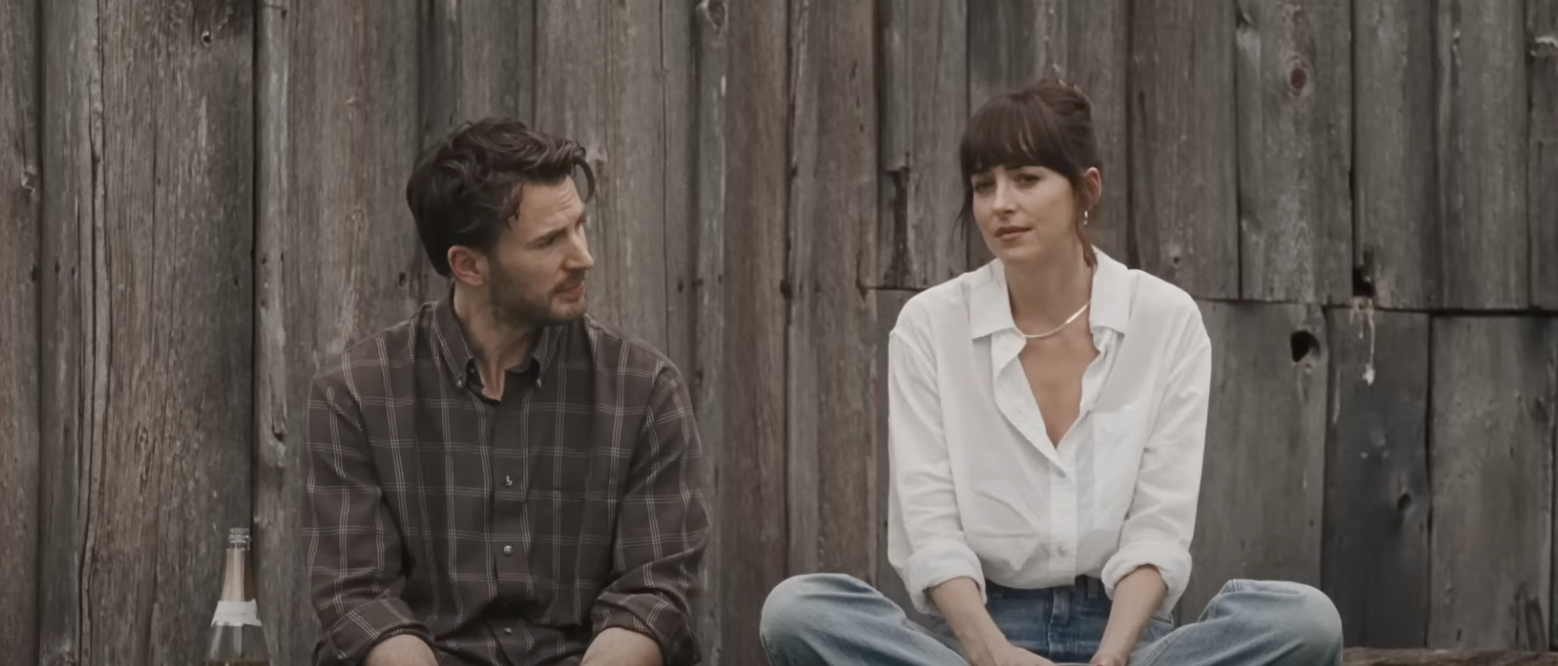
“The first time we ever met on the film,” he continued, “Celine had a whole playlist of musical themes that she felt represented these three characters, and the one she played for John was ‘Skating in Central Park’ by Bill Evans. It’s so ethereal and floaty. The movie needs to open up, like it feels whenever you’re leaving the city. Celine wanted the movie to slow down, take its time, linger. We don’t lose sight of Lucy’s cynicism at the wedding when she’s watching these two lovely people. But we want the heaviness of the city to be lifted to let them be in this space. And they get carried away with it. That’s when they kiss and when everything comes crashing down to earth.”
The climax comes down to John’s marriage proposal of unconditional love and Lucy’s surrender to it. But the ending’s ambiguous. Even though it’s bookended by the return of the caveman and woman and John presenting Lucy with his tender flower ring, there’s a proposal to run the New York matchmaking office hanging over her. We’re back to the uneasy equilibrium of social status.
“ What I loved working on this film is the combining of the cynicism with the romanticism,” Fraase said. “Trying to juggle these two is not mutually exclusive. They play off each other in interesting ways.”

